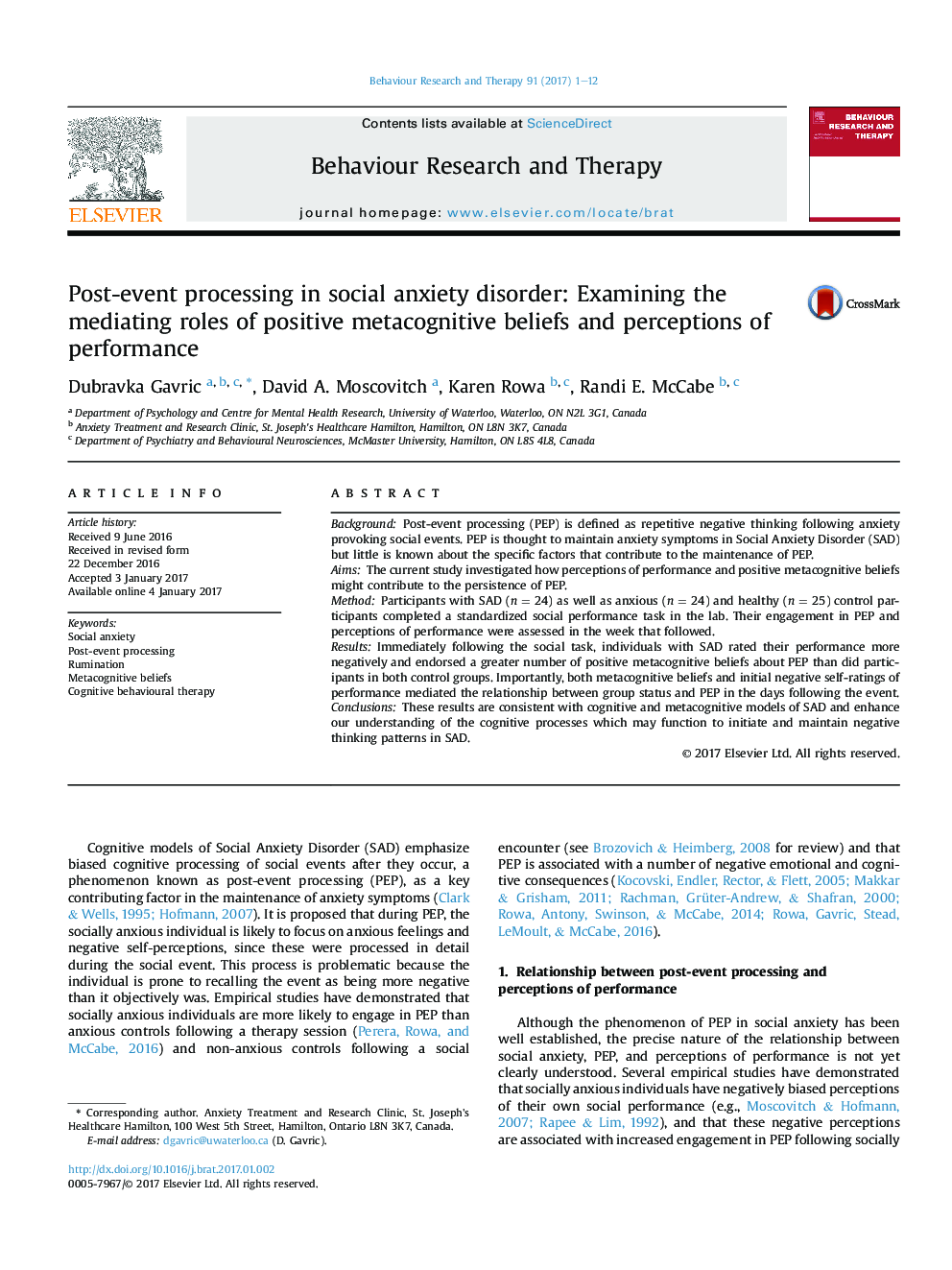| Article ID | Journal | Published Year | Pages | File Type |
|---|---|---|---|---|
| 5038209 | Behaviour Research and Therapy | 2017 | 12 Pages |
â¢Socially anxious participants reported more negative performance than anxious/healthy controls.â¢Socially anxious participants engaged in greater post-event processing (PEP).â¢Socially anxious individuals reported more positive metacognitive beliefs about PEP.â¢Performance and metacognitive ratings mediated between diagnostic status and PEP.
BackgroundPost-event processing (PEP) is defined as repetitive negative thinking following anxiety provoking social events. PEP is thought to maintain anxiety symptoms in Social Anxiety Disorder (SAD) but little is known about the specific factors that contribute to the maintenance of PEP.AimsThe current study investigated how perceptions of performance and positive metacognitive beliefs might contribute to the persistence of PEP.MethodParticipants with SAD (n = 24) as well as anxious (n = 24) and healthy (n = 25) control participants completed a standardized social performance task in the lab. Their engagement in PEP and perceptions of performance were assessed in the week that followed.ResultsImmediately following the social task, individuals with SAD rated their performance more negatively and endorsed a greater number of positive metacognitive beliefs about PEP than did participants in both control groups. Importantly, both metacognitive beliefs and initial negative self-ratings of performance mediated the relationship between group status and PEP in the days following the event.ConclusionsThese results are consistent with cognitive and metacognitive models of SAD and enhance our understanding of the cognitive processes which may function to initiate and maintain negative thinking patterns in SAD.
